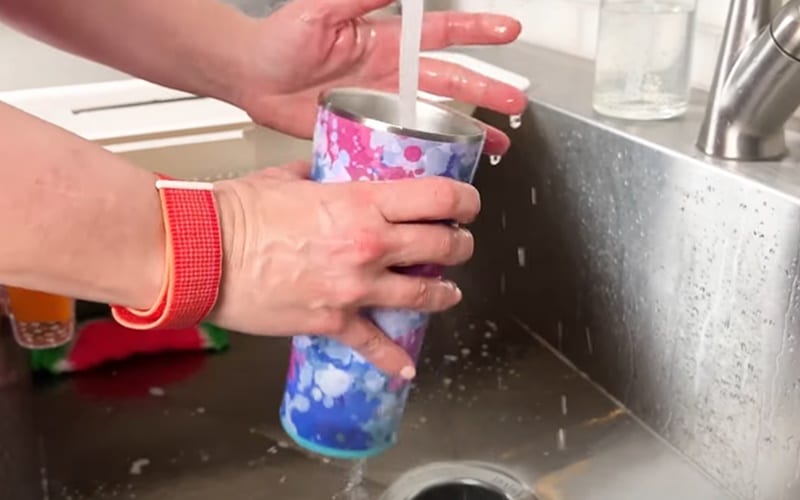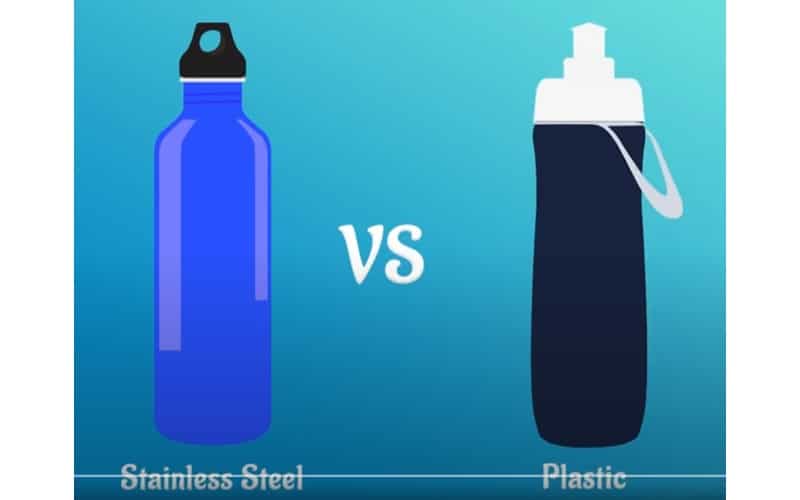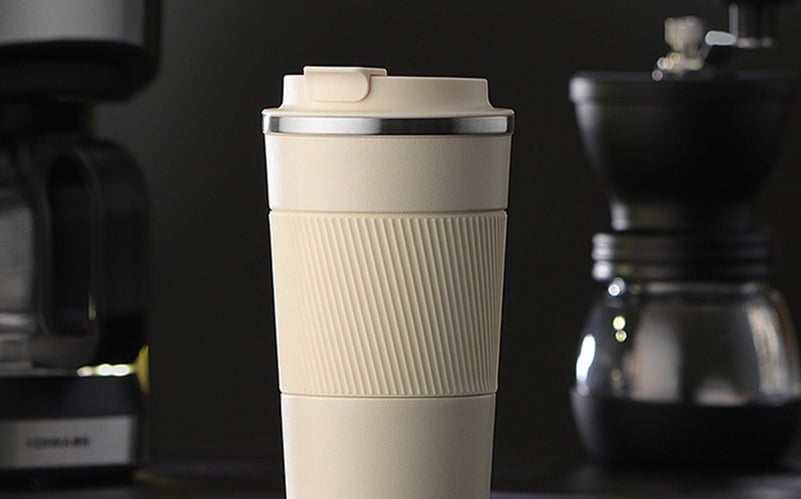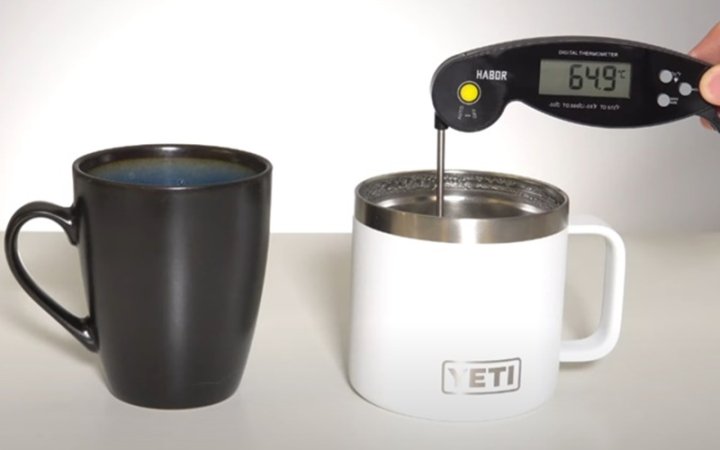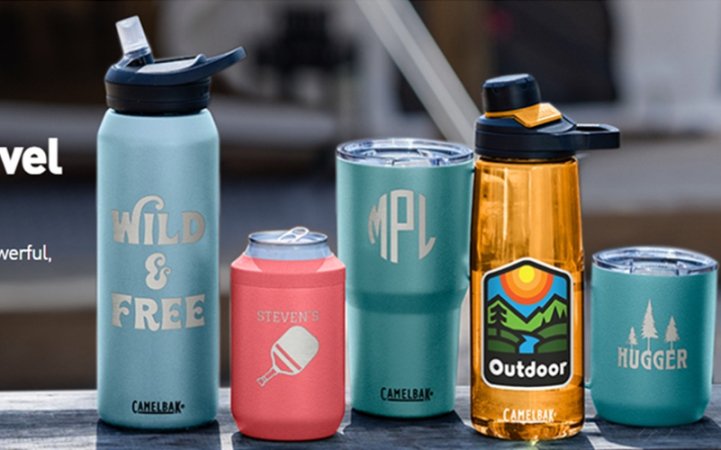What Happens When You Drink Too Much Water?
Last Updated on March 11, 2024 by Tina ShaoWhile staying hydrated is essential for our overall health and well-being, consuming too much water can lead to overhydration, which can have serious consequences.
In this article, we’ll explore the dangers of drinking excessive water, including water intoxication and hyponatremia, and guide you in maintaining a healthy hydration balance. By understanding the risks and knowing how to listen to your body, you can ensure you get the right amount of water without compromising your health.
What Happens When You Drink Too Much Water?
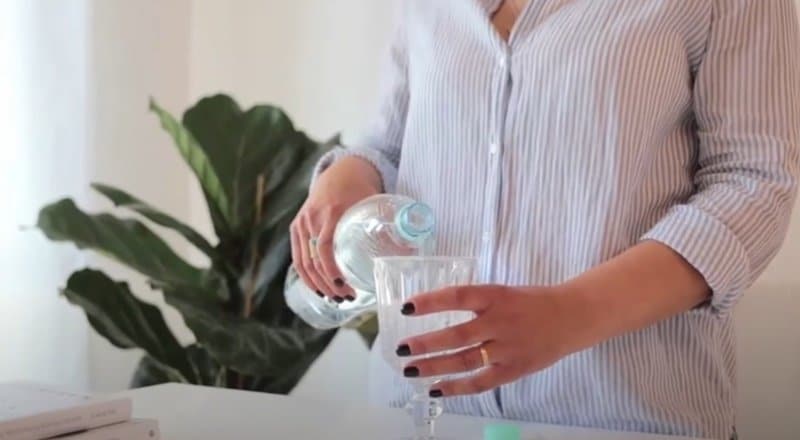
Drinking too much water can lead to overhydration, which occurs when excessive water intake dilutes sodium levels in your blood, creating an imbalance between water and electrolytes in your body. This condition can have several consequences, ranging from mild discomfort to severe complications. Here’s what can happen when you drink too much water:
- Hyponatremia: The most significant risk of overhydration is hyponatremia, a condition characterized by low sodium levels in the blood. Symptoms can include headache, nausea, vomiting, confusion, irritability, seizures, and even coma or death in severe cases.
- Swelling: Drinking excessive amounts of water can cause your cells to swell, leading to swelling in various parts of the body, such as the hands, feet, and face.
- Frequent urination: Overhydration can cause you to urinate more frequently, disrupting your daily life and sleep schedule.
- Electrolyte imbalances: Excessive water intake can dilute the concentrations of essential electrolytes in your body, leading to imbalances that can disrupt various bodily functions and cause muscle weakness, cramping, or spasms.
- Headaches: Overhydration can lead to headaches due to changes in blood pressure and electrolyte imbalances.
- Interference with medications: In some cases, excessive water intake can interfere with the absorption and effectiveness of certain medications, potentially leading to a reduced therapeutic effect or an increased risk of side effects.
- Serious complications: In extreme cases, overhydration can lead to seizures, coma, brain damage, and even death due to brain swelling and disruption of vital processes in the body.
To avoid these risks, it’s essential to maintain a balance between drinking enough water to stay hydrated and not consuming excessive amounts that could lead to overhydration. Listen to your body and consult a healthcare professional if you have concerns about your hydration needs.
Kidney failure: drinking too much water.
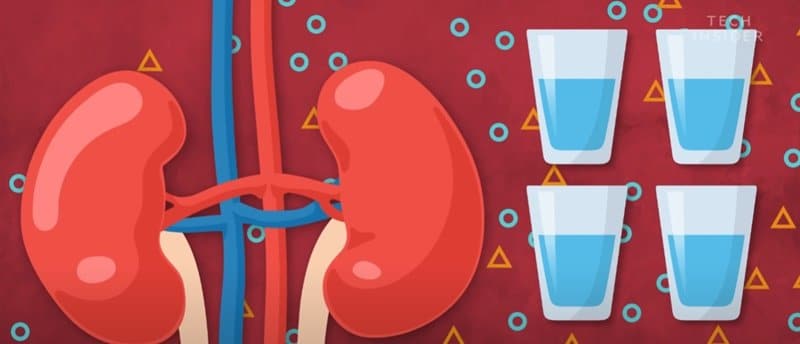
While drinking too much water can cause stress on the kidneys due to the increased workload of filtering and eliminating the excess water, it is unlikely to directly cause kidney failure in individuals with healthy kidneys.
However, overhydration can lead to hyponatremia, a condition where the sodium levels in the blood become dangerously low, which can have severe consequences, including seizures, coma, and even death.
In individuals with pre-existing kidney issues or compromised kidney function, excessive water intake could exacerbate their condition by putting additional stress on the kidneys. In such cases, it is essential to follow the advice of a healthcare professional regarding fluid intake and management.
Maintaining a balance between drinking enough water to stay hydrated and not consuming excessive amounts that could lead to overhydration is crucial. Listen to your body, and consult with a healthcare professional if you have concerns about your hydration needs, especially kidney problems.
Is it okay to drink a gallon of water a day?

For many people, drinking a gallon (128 ounces or 3.8 liters) of water daily is generally safe and may even have some health benefits. However, individual hydration needs can vary depending on age, gender, body weight, physical activity levels, climate, and overall health.
In some cases, drinking a gallon of water daily might be appropriate, particularly for those who engage in intense physical activity, work in hot environments, or have a larger body size. However, for others, this amount could be excessive and potentially lead to overhydration if consistently consumed without a specific medical reason or under the supervision of a healthcare provider.
Listening to your body and adjusting your water intake according to your needs is essential. Consult your healthcare provider for personalized advice if you are unsure about your specific hydration needs. Remember that drinking too much water too quickly or consistently consuming excessive amounts can lead to overhydration, negatively affecting your health.
How do I know if I drank too much water?
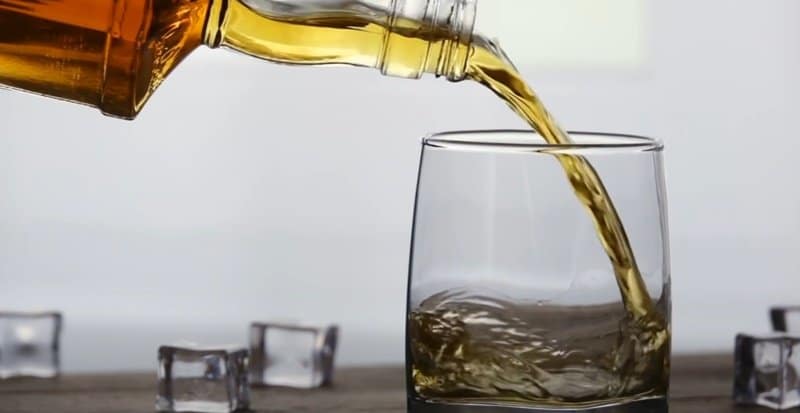
Drinking too much water can lead to overhydration, also known as water intoxication or hyponatremia. This occurs when excessive water intake dilutes sodium levels in your blood, leading to an imbalance of water and electrolytes in your body. Recognizing the signs and symptoms of overhydration can help you identify if you’ve consumed too much water. Some common symptoms of overhydration include:
- Swelling or puffiness: Overhydration can cause your cells to swell, leading to swelling in your hands, feet, or face.
- Frequent urination: Drinking excessive amounts of water may cause you to urinate more often, even waking you up at night.
- Clear urine: When you drink too much water, your urine may become very light in color or almost clear, indicating dilution.
- Nausea and vomiting: Overhydration can lead to feelings of nausea and may cause vomiting as your body tries to eliminate the excess water.
- Headache: A drop in sodium levels due to overhydration can cause headaches.
- Fatigue or lethargy: Drinking too much water can make you feel tired, weak, or sluggish.
- Confusion or disorientation: Severe overhydration can cause confusion, irritability, or disorientation as the brain swells due to the imbalance of water and electrolytes.
- Seizures, coma, or even death: In extreme cases, overhydration can lead to seizures, coma, and even death due to brain swelling and disruption of vital processes in the body.
If you suspect you’ve consumed too much water and are experiencing any of these symptoms, seek medical attention immediately. Maintaining a balance between drinking enough water to stay hydrated and avoiding excessive water intake that could lead to overhydration is essential.
What to do if you drink too much water?
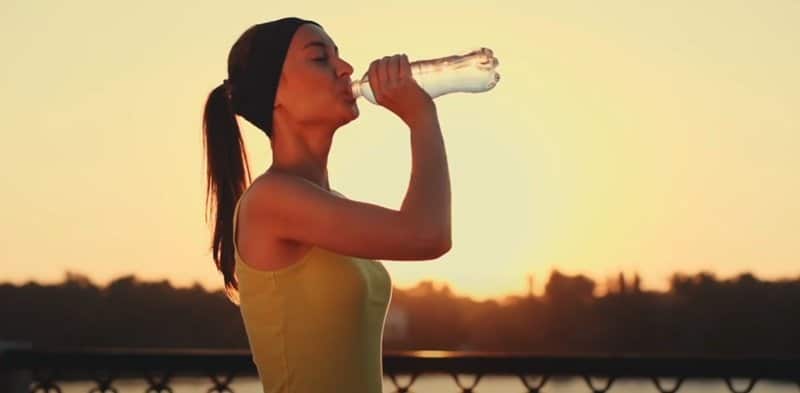
If you suspect you’ve consumed too much water and are experiencing symptoms of overhydration or hyponatremia, it is essential to seek medical attention immediately. Some of the symptoms of overhydration can include headache, nausea, vomiting, confusion, irritability, seizures, and, in severe cases, coma and death.
Here are some steps you can take if you think you have drunk too much water:
- Stop drinking water immediately: If you believe you’ve consumed too much water, stop drinking any more fluids right away to prevent further worsening of the condition.
- Monitor your symptoms: Pay close attention to any symptoms that may indicate overhydration or hyponatremia. If you experience severe symptoms such as seizures, confusion, or loss of consciousness, seek emergency medical attention.
- Seek medical help: Consult a healthcare professional or go to the nearest emergency room if you experience symptoms of overhydration or hyponatremia. Prompt medical intervention is crucial to prevent serious complications.
- Follow medical advice: Depending on the severity of your condition, a healthcare professional may recommend treatment options such as fluid restriction, diuretics, or intravenous saline solution to help restore your electrolyte balance.
To avoid overhydration, it’s essential to maintain a balance between drinking enough water to stay hydrated and not consuming excessive amounts that could lead to overhydration. Listen to your body and consult a healthcare professional if you have concerns about your hydration needs.
Can you die from drinking too much water?
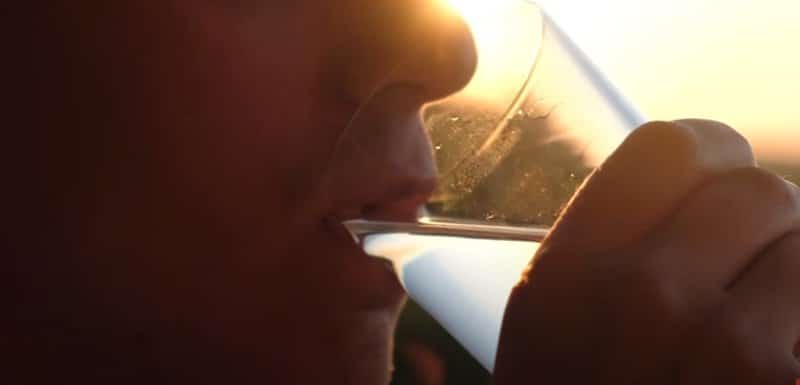
Yes, it is possible to die from drinking too much water, although such cases are rare. Consuming excessive amounts of water can lead to water intoxication or hyponatremia, when the sodium levels in the blood become dangerously low due to the dilution caused by excess water intake.
When sodium levels drop rapidly, it can cause water to move into the cells, leading to swelling. This swelling can be particularly dangerous in the brain, as the increased pressure inside the skull can result in brain damage, seizures, coma, and even death.
The risk of death from water intoxication is higher when large volumes of water are consumed within a short period, overwhelming the kidneys’ ability to eliminate excess water and leading to a rapid drop in blood sodium levels.
To avoid the risks associated with overhydration, it’s essential to maintain a balance between drinking enough water to stay hydrated and not consuming excessive amounts. Listen to your body and consult a healthcare professional if you have concerns about your hydration needs.
How Many Ounces of Water Should I Drink a Day?
The Institute of Medicine recommends that adult men drink about 69 ounces (2.7 liters, about 10 cups) of beverages daily. Women should drink about 9 cups, or 2 liters, of water each day. If it’s hot outside (above 85°F), increase your intake by 1–2 additional fluids to prevent dehydration.
Try personalized stainless steel cups to manage your daily water intake
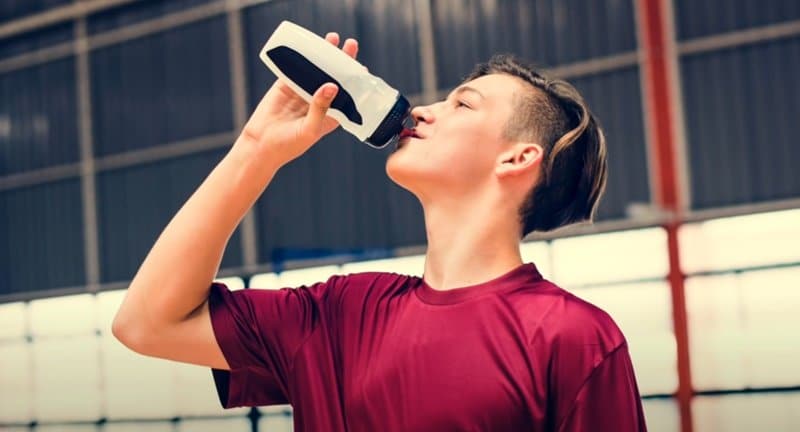
Personalizing a stainless steel water cup can add a unique touch to your hydration routine and make drinking water more enjoyable. It can also serve as a constant reminder to drink more water. Here are some of the benefits of this idea:
- Better Hydration Management: You can easily monitor your water intake by purchasing a stainless steel water cup of a specific size. For example, if your cup holds 500 ml and your daily goal is 2 liters, you must drink four cups daily.
- Temperature Maintenance: Stainless steel cups are often insulated, meaning they can keep your water cold longer, which can be more refreshing and encourage more frequent sips.
- Eco-friendly: Stainless steel cups are reusable and durable, making them a more environmentally friendly choice compared to single-use plastic bottles.
- Personal Touch: Personalization can make the cup more appealing and serve as a motivator or a reminder to drink water.
- Health Benefits: Proper hydration has numerous health benefits, including improved physical performance, increased energy levels, and better brain function.
- Cost Saving: Investing in a durable stainless steel cup can also save you money in the long run, as you won’t need bottled water.
Remember to properly clean your cup to ensure it lasts long and remains safe.
Conclusion
Drinking too much water can lead to overhydration and a dangerous condition called hyponatremia, which can have severe consequences, including seizures, coma, and even death. To maintain a healthy hydration balance, listening to your body and spreading your water intake evenly throughout the day is essential.
FAQs About What Happens When You Drink Too Much Water
Can you drink too much water in a short period?
Yes, consuming large volumes of water within a short period can be dangerous, as it can overwhelm the kidneys’ ability to eliminate excess water and lead to a rapid drop in blood sodium levels, potentially causing water intoxication and its associated risks.
How can I tell if I’m drinking too much water?
Monitor your body for signs of overhydration, such as frequent urination, clear urine, or symptoms of hyponatremia. It’s essential to listen to your body and consult a healthcare professional if you have concerns about your hydration needs.
What should I do if I consume too much water?
If you suspect you’ve consumed too much water and are experiencing symptoms of overhydration or hyponatremia, seek medical attention immediately. Treatment may include fluid restriction, diuretics, or intravenous saline solution to help restore your electrolyte balance.


